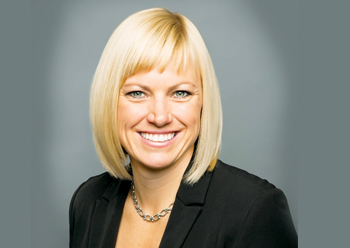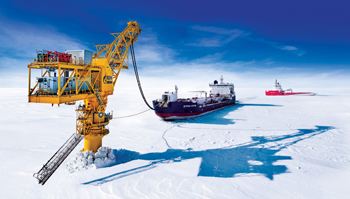
 Siggins ... pushing for best practices
Siggins ... pushing for best practices
The Global Industrial Cleaning Coalition aims to save lives and reduce injuries in the industrial cleaning sector by contributing to the creation and adoption of basic industrial cleaning guidelines around the world, writes KERRY SIGGINS, CEO of StoneAge
The use of high-pressure water jetting as a primary means to clean is growing around the world. Cleaning with water is efficient and more environment-friendly compared to other methods of cleaning.
The downside of waterjet cleaning, however, is that it’s very dangerous if not properly performed. Unfortunately, each year the industry sees too many waterjet injuries, and worse, fatalities.
High pressure waterjetting can be performed safely but it requires the development, adherence, and training of regimented safety requirements. Many countries have safety associations with well documented requirements, but most don’t, including countries across the Middle East.
 |
High-pressure water jetting ... a primary cleaning system is dangerous if not properly performed |
Because high pressure waterjetting is commonly performed in refineries and petrochemical plants globally, many multi-national asset owners have expressed an interest in aligning water jetting safety guidelines across countries where their facilities are located to eliminate safety incidents and improve plant efficiency.
Owner representatives want to establish safety associations such as the Netherlands-based safety organisation Stichting Industriele Reiniging (SIR), UK-based Water Jetting Association (WJA), and the US–based WaterJet Technology Association (WJTA) to provide a basis for contractor safety and technology implementation on a global scale.
In May 2018, the WJTA and SIR facilitated a meeting between various global safety organisations and asset/facility owners, presenting a compelling case for the development of basic global waterjetting safety standards. Attendees engaged in a productive and collaborative discussion regarding how to develop basic global safety standards to educate and ultimately require safe waterblasting practices.
The outcome of this meeting was the drafting of the ‘Basic Principles of Safe Waterjetting Operations’ to be used as the base of all waterjetting safety practices.
Then a small committee made up of safety association members and owners representatives formed and met to fine tune the principles in preparation for the formal ratification, which happened at the WJTA’s annual expo held in New Orleans, Louisiana, US, in November 2019.
In May 2019, the decision was made to formalise this effort and the Global Industrial Cleaning Coalition (GICC) was created. The GICC is a group of industrial cleaning safety associations, with input from asset owners, contractors and equipment manufacturers (OEMs), coming together to contribute in the creation and adoption of basic industrial cleaning guidelines around the world.
The purpose of the GICC is to help save lives and reduce injuries in the industrial cleaning industry. Its mission is to help national safety associations adopt basic cleaning principles in high pressure waterjetting, municipal/vacuum truck cleaning, chemical cleaning, and respiratory protection that are easy to implement country by country in consideration of differing workforce, regulatory and economic conditions and without imposing on sovereignty of the existing national organisations.
Amongst the goals of GICC are:
• Develop the basic principles for all industrial cleaning methods.
• Work with participating national safety organisations around the world to implement, at a minimum, the ‘basic cleaning principles’ and to develop training/certification programmes that are in alignment with these principles.
• Perform a gap analysis of the participating national safety organisations’ guidelines, providing recommendations on changes they could make to align their guidelines with the principles.
• Develop an asset/facility owner outreach programme to connect them with their national safety association with the goal of educating and assisting them in the adoption of these principles.
• Promote and market the importance of following the principles.
• Create a database of safety incidents (near misses, injures, fatalities) to facilitate information sharing between national safety organisations.
For this grassroots movement to be effective, support from key global stakeholders is required. It takes effort and commitment from safety associations, asset/facility owners, contractors, and OEMs to create change.
Asset/facility owners must educate themselves on available technology and require the use of safe practices and automated waterjetting. Contractors must commit to training their people in the use of safe waterjetting methods. And OEMs must develop equipment that promotes safety and simplicity.
Global safety associations must partner with all three stakeholders to implement more stringent and standardised best practices. Safety matters; the advancement of technology matters; and working together is how we all win.
• An author and speaker, Kerry Siggins is the CEO of StoneAge, a leading manufacturer of high-pressure waterjetting tools and automated equipment, based in Colorado, US. She is also Vice President of the WaterJet Technology Association (WJTA) and a founding member of the GICC.





































































.jpg)